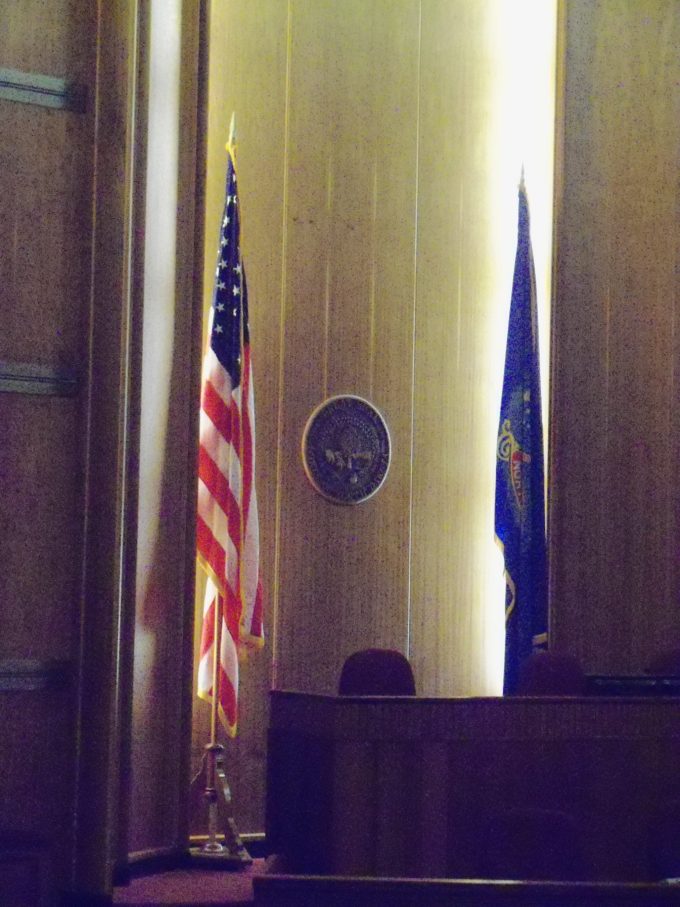
Friday, 23 August 2019
There is one Lawgiver, who is able to save and to destroy. Who are you to judge another? James 4:12
The word “one” is in the emphatic position in the Greek. It states, “One is the Lawgiver Who is able to save and destroy.” The words remind the reader of Jesus’ words of Matthew 10:28 –
“And do not fear those who kill the body but cannot kill the soul. But rather fear Him who is able to destroy both soul and body in hell.”
At that time, Jesus didn’t get into a great theological discussion about the nature of the judgment which would result in such an action. He simply stated that God is to be feared and that He has the power to take action according to His judgment.
However, it is obvious here that James is referring to Christ Jesus who has been given all authority in heaven and on earth. Paul says in Romans 2:16 that it is God who “will judge the secrets of men by Jesus Christ.” He is the same Lord who gave forth the covenant at Sinai, and who then – through His incarnation – fulfilled that law and established the New Covenant in His blood.
In the capacity as Lawgiver, it is He alone “who is able to save and to destroy.” As this is so, then James now makes evident the contrast to what he wrote in the previous verse. There he spoke of the one who judges the law. In doing so, that person “is not a doer of the law but a judge.” However, since “One is the Lawgiver,” then such a person has wrongfully stepped into a supposed position of authority. Because of this, James asks, “Who are you to judge another?” As Albert Barnes says of this –
“There is nothing more decidedly condemned in the Scriptures than the habit of pronouncing a judgment on the motives and conduct of others. There is nothing in which we are more liable to err, or to indulge in wrong feelings; and there is nothing which God claims more for himself as his peculiar prerogative.”
He is correct. We are not in the position to pronounce our self-determined judgments upon another. We do not set the standard. When we do, we usurp the right of the Lord who alone possesses that authority.
Having said that, He has expressed the standard in His word. This is one purpose of Scripture. And, therefore, we are given the authority to make right judgments which are in accord with that word. This is painfully evident throughout the epistles as well. Paul’s words in 1 Corinthians 5:9-13 show this. James makes this evident in the final two verses of his epistle. John tells us to make right judgments in 2 John 1:10. These are just a few examples which call believers to judge according to the word which has been given. The Lawgiver has given His law; His people are to conduct their judgments in accord with that law.
Life application: It is Jesus who is able to save and destroy. This is because He authored the law and then fulfilled the law. Therefore He is both qualified to judge infractions of the law and also to pardon infractions committed. Why? It is because He, after fulfilling the law – completely and perfectly – received the punishment of the law on our behalf.
The cross, leading to His death, was just punishment for any infraction of the law. When we trust in Jesus Christ, we accept both His fulfillment of the law and the pardon offered through His substitutionary death (a precept allowed under the law). In other words, the punishment we deserve was also fulfilled by Him.
America’s founding fathers understood the concept of both pardon and single trial for punishment of an offense, and laid them out in the Constitution –
“The President … shall have Power to Grant Reprieves and Pardons for Offenses against the United States…”
“No person shall be… subject for the same offense to be twice put in jeopardy of life or limb…”
We all have sinned; we all deserve death for our sins. Jesus fulfilled the law by not sinning and then was crucified under the law. However, death could not hold Him because death results from sin (of which He had none). Now, when we trust Him, we are free from the law because He received the trial and judgment in Himself on our behalf. We can now stand pardoned through His shed blood. What a bargain!
It is hard to imagine, Lord Jesus, that You were willing to live the life we cannot live. You then gave Yourself as a sacrifice of atonement for our failings. How can we not accept Your pardon and receive Your mercy! You are our Lord and we will follow You all of our days. Glory to You, O Lord Jesus! Amen.




